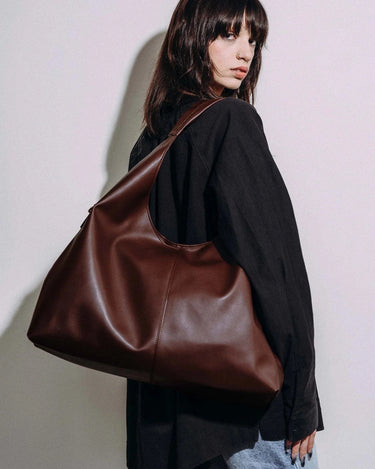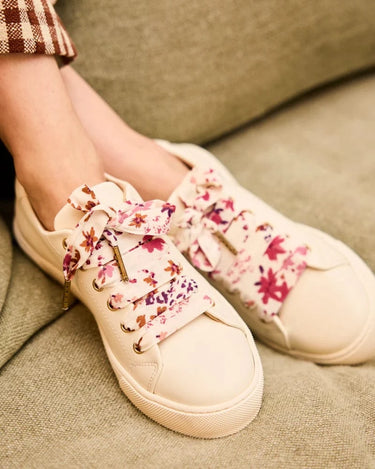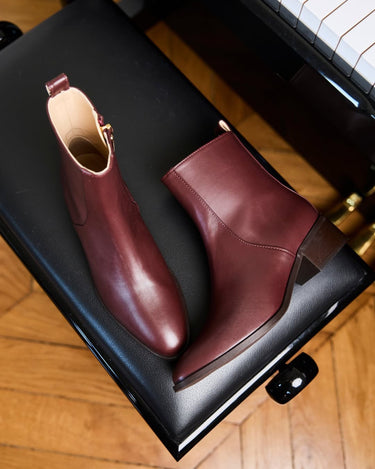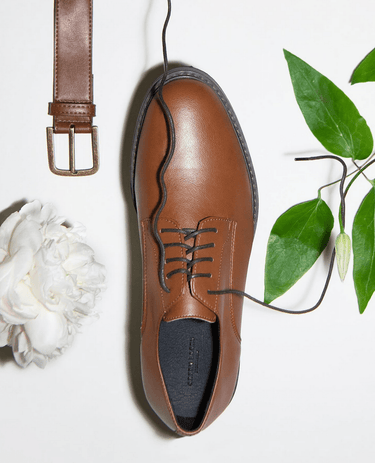The premium homewares brand inspired by artisan Turkish textiles
British company Lüks Linen was inspired by founder Rachel Ward's travels in Turkey, and the women makers she grew up around. In 2015 she left her creative agency career in London to pursue her love of textiles. From the endlessly versatile peshtemal (or hammam towel as it is commonly known) Rachel has slowly and thoughtfully expanded the Lüks product range over the years, to include blankets, throws, tableware and lounge wear.
What led you to start Lüks?
After spending almost 20 years in the creative and advertising industry working predominantly in video games and music, I was craving something tangible, something with longevity that would last longer than the marketing campaigns I worked on.
I grew up in a family of carpenters, seamstresses and knitters, so I suppose it was kind of inevitable that that would be what I returned to. However it didn’t become clear what I would do until, whilst travelling in Turkey, I came across the peshtemal. The craftsmanship behind these beautiful towels coupled with their versatility and heritage drew me in, and on a sun bed on the beach I made the decision to quit the London career and start up on my own.
How did you choose the name?
My former colleagues won’t appreciate this as we worked on many branding projects. Whilst I respect the value in the process of developing a brand, by the time I left I was exhausted by it, so I went against everything I knew and simply typed into Google what luxury was in Turkish. Luckily for me it was short and sweet – Lüks.
How would you describe your products, and what makes them different?
With all of our products we are looking for a certain level of versatility that allows people to do more with less both at home and away. Our cotton blankets and throws are both warm and lightweight, which means they can be used throughout the home as well as for travel.
Our handwoven lounge gowns work as well by the pool or over a tee and jeans as they do as a traditional dressing gown, and our tableware is specifically woven to a size that you can use as napkins, placemats, tea or hand towels.
Of course nothing says versatility like our hero product the peshtemal – it's vastly different to a traditional loop and pile towel. They’re flat woven which means they are both lightweight and compact – so great for travel and when space is at a premium. They offer a different drying experience in that they wipe away moisture rather than absorbing it, which means they dry quickly and require less laundering than normal towels, which is better for the environment. And best of all they can also be used as a scarf, sarong, wrap, throw, knotted beach bag, baby blanket… I could go on.
Obviously we're not the only company that sells Turkish textiles, but what differentiates us is our commitment to longevity. We are I believe the only peshtemal company that offers a 20 year repair or replace guarantee on our products!
What stereotypes exist in your industry (and how are you breaking them)?
Hmm – I guess that towels are boring everyday items that we don’t give much thought to except when they go stiff and need replacing, which for a lot of people just means a trip to TK Maxx or John Lewis. Peshtemals go against that grain – not sure if they’re disruptive, but they certainly add character and decorative flair to the bathroom.
Can you tell us more about where, how and by who your products are made?
So we work with weavers in Denizli which is in the southwest of Turkey, and Hatay in the South – both of which are centuries old heartlands of textile production. As much as possible we work with small family ateliers whose craft has been passed down through generations.
When I launched Lüks I wanted to support other small businesses, and those that we started working with 5 years ago we still work with today. As the business and necessity for organiccertification and supply chain has grown, we have started to work with bigger companies who can supply that, but still use traditional methods of shuttle looming or man-operated semi-automatic looms. It’s sad that the annual costs of things like GOTS certification are prohibitive for the smaller ateliers.
Do you think movements like Fashion Revolution create enough pressure on big brands to change how they work – and what more should be done?
Slowing down fast fashion is like turning a ship – the reality is that it’s going to take time, and the responsibility doesn’t just sit with the brands and organisations such as Fashion Revolution, who do an amazing job in educating, applying pressure and calling out ‘greenwashing’ for what it is.
Could brands be doing more right now – of course. ‘Conscious collection’ window displays in H&M grind my gears when you consider what a small percentage of their range those lines account for – but I also think there’s a lot to be done with regards to consumer psychology and our innate need for a bargain vs. an investment piece. As the saying goes ‘we can vote for the world we want with our purse’ but not everyone has that privilege.
What’s your favourite product from your collection and why?
Just one? The Mete Lounge Gown has got to be up there – it’s just been with me on our summer holiday. It works as a light transitional layer as we head into Autumn, and it’s perfectly socially acceptable to answer the door to the postman in.
Apart from that, it’s got to be the Damla Peshtemal in Tangerine – It was one of the first peshtemals I ever bought and is still in our collection 5 years later. Mine is now butter soft and makes a great scarf, as well as a yoga and swim towel.
How has the brand and industry evolved since you started?
Lüks has always been an ethical brand committed to sustainability, and a few years ago it did feel like we were banging a drum that not many people were bothered about listening to. They just wanted nice stuff – the ethics and production methods were a brucey bonus. That’s definitely flipped over the last 18 months to 2 years ( I think David Attenborough had a bit to do with that).
As for Lüks as a brand, well we’ve slowly and thoughtfully extended our product range. We outgrew the spare bedroom and now we have a lovely studio space to work from just outside Brighton – sadly that doesn’t include a bed and the temptation of a mid-afternoon disco nap. (I miss those…).
What changes have you had to make since you started - and which ones were the hardest?
Being selective and objective – developing an ability looking at what our customers wanted and not just what took my fancy. With very little retail experience I did spend the first 12 months curating products I wanted in my home, and that’s not a very broad church. It’s an art form and an inexact science. Even now having to say goodbye to a product line that I think is beautiful but doesn’t sell is still a little heart-wrenching.
Biggest highs and lows?
The high – being featured in Elle Decoration as one of the UK’s best ethical online stores was a bit of a moment. It’s been my bible for years so to see our brand in its pages felt like I’d ticked a box.
The low – I’m sure I’m not alone in this as a small business, but one of the first big retail shows we did flopped. We’d invested a few thousand in it quite early on in our journey and it was a blow, as we weren’t realistic with our expectations (or cash flow).
What drives you, and where do you get your inspiration from?
When you’re working with pattern design inspiration is everywhere, which is both a blessing and a curse – thank god for the camera on my iPhone. My desk is littered with magazine pages, random flora and fauna and colour charts, which is usually where I start. I do follow fashion trends, as clothing colours do tend to filter down into interiors after a year or so and hang around longer than a season
I also have a tendency towards tactile nostalgia – those fabrics and weaves that remind you of your childhood. Our Pom Pom throw is a good example of this – it’s a very simple heavy weighted cotton weave that reminds me of the blankets my Granny used to wrap me up in. I suppose ultimately I’m looking for products that provide a sense of comfort.
What other pioneering brands do you admire and why?
Patagonia is up there as the gold standard for how a brand should behave, their commitment to the environment, education and donating Trump’s tax break savings of $10 million is up there – we could all take a leaf out of their book.
The next big thing in your industry is ...
I think we're going to see more and more biophilic interior design over the next year or two. The world’s a crazy place right now, people are more ‘woke’ than they've ever been and that’s going to naturally disseminate into the home and the need to create more restful, comforting spaces.
If you were doing something other than this, what would it be?
Singing backing vocals for The 1975 on their next world tour…that or mucking out stables!
What’s next for Lüks?
Full OCS certification is next on our list – we’re getting there with some of our best-selling lines and it would be nice to get a full house by early next year. That and extending our lounge-wear range – watch this space.
You can browse the Lüks Linen collection here.

For articles like this in your inbox, sign up to our newsletter, and get 10% off your first purchase too.
Related Articles

How To Have A Very Vegan Valentine's Day

Why Veganuary Is Still Relevant
















































































































